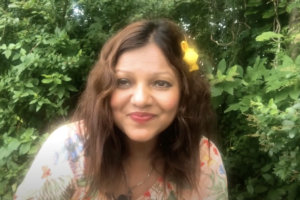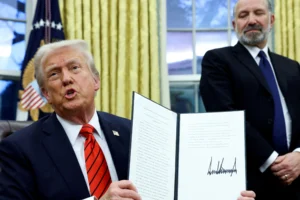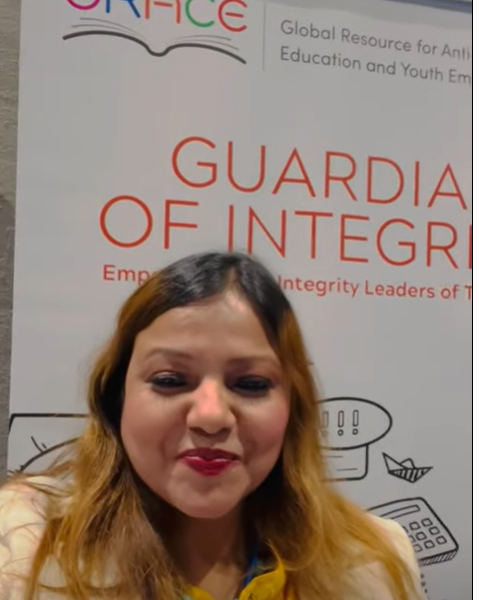Some Indians took to the streets, burning an effigy of Pakistan, after news of the air strikes broke
India says it launched air strikes against militants in Pakistani territory in a major escalation of tensions between the two countries.
The government said strikes targeted a training camp of the Jaish-e-Mohammad (JeM) group in Balakot.
Pakistan said the strikes hit an empty area but vowed to respond.
Relations between the nuclear-armed neighbours have been strained since a suicide attack earlier this month that killed more than 40 Indian troops.
India accuses Pakistan of allowing militant groups to operate on its territory and says Pakistani security agencies played a role in the 14 February attack – claimed by JeM. Pakistan denies any role and says it does not provide safe haven to militants.
Tuesday’s air strikes are the first launched across the line of control – the de facto border that divides India-administered Kashmir from Pakistan-administered Kashmir – since a war between the two countries in 1971.
Balakot is in Pakistan’s north-western Khyber Pakhtunkhwa province. Residents there told BBC Urdu they were woken by loud explosions.
Pakistan condemned the strike and said it would respond “at the time and place of its choosing”.
What does India say happened?
Indian Foreign Secretary Vijay Gokhale told a news conference that the strikes had killed a “large number” of militants, including commanders, and had avoided civilian casualties.
“Credible intel [intelligence] was received that JeM was planning more suicide attacks in India. In the face of imminent danger, a pre-emptive strike became absolutely necessary,” he said.
Indian Prime Minister Narendra Modi did not directly mention the air strikes when he addressed a political rally in Rajasthan later on Tuesday but he told cheering crowds: “I understand your enthusiasm and your energy. Today is a day we bow before our heroes.”
India is due to hold elections by the end of May.
How has Pakistan responded?
Pakistan’s army spokesman Major General Asif Ghafoor said the strikes caused no casualties. He tweeted that Pakistani jets were scrambled and forced the Indian planes to make a “hasty withdrawal”, dropping their payload in an open area.
Pakistani Prime Minister Imran Khan later chaired an urgent meeting of national security chiefs and condemned “irresponsible Indian policy”.
“Once again [the] Indian government has resorted to a self-serving, reckless and fictitious claim,” a statement issued after the meeting said. “This action has been done for domestic consumption, being in an election environment, putting regional peace and stability at grave risk.”
Meanwhile, residents in several towns near Balakot reported hearing explosions early on Tuesday.
Mohammad Adil, a farmer in Jaba village, told BBC Urdu he and his family were woken at about 03:00 by “a huge explosion”.
“Then we heard jets flying over. We went to the place in the morning. There was a huge crater and four or five houses were destroyed,” he said.
Tensions reach a dangerous level
Analysis by M Ilyas Khan, BBC News, Islamabad
The Indian air strikes that hit a target inside Pakistani territory have taken tensions to a dangerous level.
In September 2016, an attack on an Indian army base in Uri created a similar situation when Delhi decided to respond with so-called “surgical strikes”.
Indian claims then that they airdropped special forces to destroy militant camps on the Pakistani side of Kashmir were found to be largely exaggerated, but Indian troops did cross at several points along the Line of Control (LoC), inflicting some casualties on Pakistani forces.
This time they have hit a target across the international border, inside Pakistani territory, at a location where a training camp of Kashmiri militants is known to have existed for several years.
Pakistan’s military has cordoned off the area and not even the local police are allowed in, so it will be some time before details of the attack become known.
Also, Pakistani officials have been underplaying the severity of the incident by describing it as a strike “across the LoC”, not one across the international border.
Pakistan has vowed to respond but this may not go beyond diplomatic measures.
However, as some observers point out, there may be punitive attacks by militants against Indian forces in Kashmir “at an appropriate time”.
In Srinagar city, in Indian-administered Kashmir, residents expressed concerns over the spike in tensions.
“Whatever is happening between these two hostile neighbours, it’s us who are in the middle of this war theatre,” Shabir Aakhoon, a banker, said.
Local reporter Sameer Yasir says a heavy military build-up in the past three days has caused panic.
Anticipating full-scale war, civilians have stockpiled food and crowded petrol pumps, triggering traffic jams in many places, he adds.
What happened in Pulwama?
On 14 February, more than 40 Indian paramilitary police were killed in a militant operation in Indian-administered Kashmir. It was the deadliest attack on Indian forces in Kashmir for decades.
The assault was claimed by Pakistan-based JeM, and prompted a spike in tensions.
Pakistan denied involvement, while India said its neighbour had had a “direct hand” in the attack, and accused it of providing sanctuary to the militants.
Both India and Pakistan claim all of Muslim-majority Kashmir, but control only parts of it. The nations have fought three wars and a limited conflict since independence from Britain in 1947 – and all but one were over Kashmir.
Pakistan’s Prime Minister Imran Khan said on Sunday his Indian counterpart Narendra Modi should “give peace a chance”. He added that if India provided “actionable intelligence” regarding the Pulwama attack that proved Pakistani involvement, “we will immediately act”.
On Saturday, Mr Modi had called on Mr Khan to join India in fighting poverty and illiteracy, instead of the pair fighting each other.
Timeline of India-Pakistan tensions
October 1947: First war between India and Pakistan over Kashmir just two months after they become independent nations.
August 1965: The neighbours fight another brief war over Kashmir.
December 1971: India supports East Pakistan’s bid to become independent. The Indian air force conducts bombing raids inside Pakistan. The war ends with the creation of Bangladesh.
May 1999: Pakistani soldiers and militants occupy Indian military posts in Kargil mountains. India launches air and ground strikes and the intruders are pushed back.
October 2001: A devastating attack on the state assembly in Indian-administered Kashmir kills 38. Two months later, an attack on the Indian parliament in Delhi leaves 14 dead.
November 2008: Co-ordinated attacks on Mumbai’s main railway station, luxury hotels and a Jewish cultural centre kill 166 people. India blames Pakistan-based group Lashkar-e-Taiba.
January 2016: Four-day attack on Indian air base in Pathankot leaves seven Indian soldiers and six militants dead.
18 September 2016: Attack on army base in Uri in Indian-administered Kashmir kills 19 soldiers.
30 September 2016: India says it carried “surgical strikes” on militants in Pakistani Kashmir. Islamabad denies strikes took place.






















